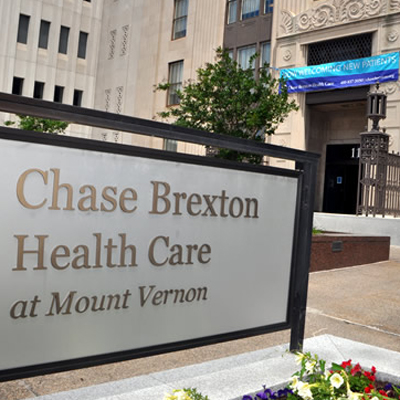From The Washington Blade, Oct. 28, 2016:
From unions to patient care, Chase Brexton Health Care has been the topic of much conversation of late. Many have asked: what does the future hold for an organization that has been a beacon of care, hope, and acceptance for Baltimore’s — and, increasingly, all of central Maryland’s — LGBTQ community for almost four decades?
I’ve been told by some that they feel Chase Brexton is growing away from its roots; transforming from an affirming expert in LGBTQ health care into a mainstream “generic” health care facility. As an openly gay man and a member of Chase Brexton’s leadership team, I’m saddened and frustrated to hear this.
There is no denying Chase Brexton has grown by leaps and bounds in the last five years, but that growth does not diminish our unending commitment to serve as an exemplary LGBTQ provider and resource for our communities.
Chase Brexton was founded in response to the needs of our community; the desire for respect, safety, and care. The volunteers who began the practice as a gay men’s STD clinic in 1978 likely had no idea how long the clinic would last. Unknown to anyone then, the HIV epidemic was also on the horizon.
HIV/AIDS ravaged Baltimore’s LGBT community through the 1980s. After a decade of battling the disease, Chase Brexton’s leadership in the early 1990s was struck by the needs of the community’s families, partners and friends who were not infected with HIV, and were not necessarily LGBT, but were in need of access to affirming, welcoming health care.
To meet those needs, we added behavioral health and case management services to our growing care model. By 1995, Chase Brexton had full primary care services available to anyone in need of care.
This expansion was not intended to minimize our care for our LGBTQ patients. To the contrary, that growth addressed more of our patients’ unique needs. It welcomed those who were yet unable to identify, and it welcomed those who were medically underserved. Ultimately, the intent of Chase Brexton’s growth was, and still is, to build stronger communities for all of us.
In 2000, we provided care to fewer than 1,000 individuals who identified as LGBTQ. Today, that number is close to 5,000. But it doesn’t include the number of individuals who come through our doors for free HIV testing and free education and resources.
In fact, the total number of LGBTQ people we serve has significantly increased, and our growth has allowed us to focus greater resources on their varied needs. By establishing our LGBT Health Resource Center, by creating a dedicated behavioral health team for LGBTQ patients, by adding a pediatric practice for gender-diverse children, and by adding support and training programs for LGBT caretakers and elders, Chase Brexton remains committed to ensuring our community’s needs are met amid the changing face of healthcare.
To the LGBTQ community at large I say: Chase Brexton will always work to meet the needs of our community. We believe the doors must be open for those who have limited access to care and we will do all we can to get them into care. And we will continue to hire and train culturally competent, affirming staff who believe in our mission and vision.
I would be remiss if I didn’t address that last thought a bit more firmly: Our staff of 410 employees across all our five centers, at every level in the organization, are a part of our team for one reason, they are mission-driven.
To put numbers to it, more than half of our provider team has a special focus on LGBT health care. While 4 percent of our total patient population identifies as gender diverse, 15 percent of our providers have a special focus on trans care.
Less than a year ago, a survey of our staff was independently performed by the Society of Human Resources Management. In that survey, 81 percent of respondents said the diversity and inclusiveness of our organization was a highly important factor in why they chose to work here. In addition, 88 percent said the work itself was a key factor in why they sought employment with Chase Brexton.
I have no doubt of the passion shared by everyone at Chase Brexton for the work we do and the patients we care for. Chase Brexton’s team is human, and we are not perfect. As an organization, and as we continue to grow, we will likely run into issues, make mistakes, and stumble. But our first and last thought in all we do is about our patients’ health and how we can provide better care for both our patients and our staff.
Nate Sweeney is executive director of the LGBT Health Resource Center of Chase Brexton Health Care.
View this op/ed at The Washington Blade's website.


